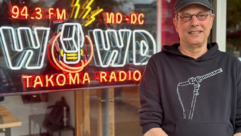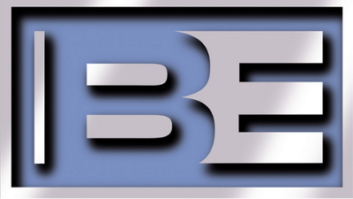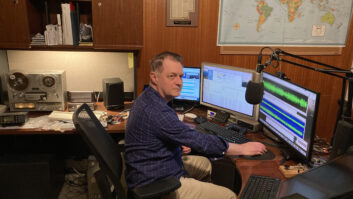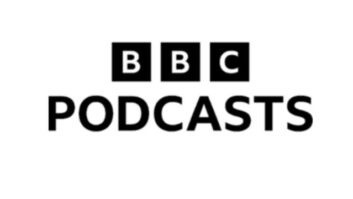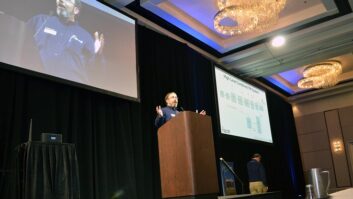
The use of various forms of carrier reduction, to save electricity in AM transmission, is known technically as MDCL, for modulation-dependent carrier level. It has taken off both internationally and now in the United States. We have tried to stay abreast of the technical aspects of the concept here at RW Engineering Extra because it offers some assistance to our oldest form of broadcasting. MDCL saves electric power, which helps to improve the competitiveness of AM by reducing the cost of operations.
The trend toward using MDCL began in the field of international broadcasting. With a goal of reaching populations in distant countries, such applications require high-power transmitters much larger than those permitted for commercial broadcasting in the U.S. and Europe. The prospect of even modest power savings in those circles was quite attractive.
Medium-wave frequencies historically have been used for international transmissions due to their ability to reach areas well beyond the line of sight via sky wave propagation. Medium-wave tuners that can receive amplitude modulation are inexpensive and easy to build. Commercial AM stations in the U.S. operate on medium-wave frequencies to exploit these same advantages.
However, AM is a relatively inefficient transmission modulation technique because the carrier itself does not convey audio information. Audio is contained in the sidebands while the main function of the carrier is allowing the receiver to convey “silence.”MDCL came about as a means to modestly reduce the carrier power without affecting the perceived “silence” level delivered to the listener.
Click on the image to link to this report on MDCL by the BBC.

FCC NOW PERMITS MDCL IN AM
The first experiments with MDCL in U.S. commercial broadcasting took place in Alaska. The wide-open expanse of Alaskan geography and its thinly spread population make this state a good place for AM broadcasting. The cost savings and performance demonstrated in Alaska with MDCL convinced the FCC to allow the use of this technology in the rest of the continental U.S. with written request for permission.
Cris Alexander writes in this issue about the experiences of Crawford Broadcasting with conversion to MDCL at two of its 50kW stations in California and Colorado .
CONTROVERSIAL
While the benefits of some form of MDCL seem apparent, in this instance not all experts agree on the exact methods to use.
To help sort out the matter, and the alphabet soup that goes with it, we also present a white paper from Daniel Maxwell, an engineer at the International Broadcasting Bureau. Maxwell explains the benefits of MDCL and the various types of algorithms that can be employed. [Read it here in our digital edition.]
As reported in Radio World, J Fred Riley, formerly of Continental Electronics, has vehemently argued that use of the AMC algorithm for MDCL is a mistake. The core of his argument is that with AMC at peak modulation, the carrier power is reduced by half, along with the modulation sidebands. Riley suggests that stations that are using the AMC algorithm might as well just reduce their power by half and save even more power, at the cost of coverage area.
On the other hand, many international broadcasters have chosen AMC and reported no loss of coverage as would be expected with a 50 percent reduction in power. In particular, a BBC study from 1988 looked at this very aspect of AMC companding. They concluded coverage was equal to regular AM, as long as carrier power was not reduced more than a maximum of 3 dB. The study was conducted in Great Britain and used a variety of AM receivers as well as A/B blind listening panels to determine if the use of AMC resulted in audible degradation of the AM signal.
SEE FOR YOURSELF
It is apparent that not everyone agrees on the best way to proceed. I would encourage anyone interested in deploying MDCL to read the studies from both sides. J Fred Riley’s paper can be found at the links page for this issue, radioworld.com/Apr-18-2012. You’ll also find the BBC study linked there.
If you want to join the debate, drop us a line at [email protected] and let us know your thoughts.




